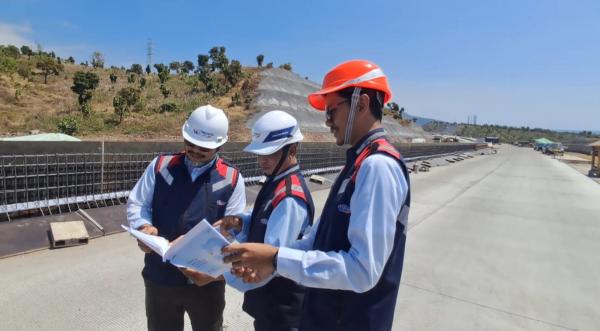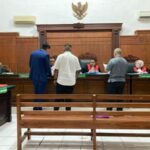
SITUBONDO – Good news for East Java residents and toll road users! The Probolinggo–Banyuwangi Toll Road project, which will become one of the strategic routes on Java Island, is targeted for completion by the end of 2025. The presence of this toll road is expected to accelerate connectivity while providing faster access to various destinations in eastern Java.
This 172-kilometer toll road is a crucial part of Java’s southern cross-island network and a priority in the national infrastructure development program. The project is being handled by a consortium of three state-owned construction companies—PP, Waskita, and WIKA—and is now entering an intensive construction phase to complete Package 3.
One of the main drivers of this project’s acceleration is PT Waskita Beton Precast Tbk (WSBP), which supplies various high-quality construction materials. From 88,631 m³ of readymix concrete to spun piles, square piles, and girders, all are produced using modern and environmentally friendly technology.
“We prioritize efficiency and quality while maintaining sustainability. Products like Fastcrete and Mortar Foam are examples of our innovation in building green infrastructure,” said the WSBP Operations Director.
Not only does WSBP accelerate the project, but it also empowers local communities through the Proban Batching Plant located in Situbondo. This 10,186-square-meter facility is equipped with 10 truck mixers and modern heavy machinery. In addition to supplying high-standard materials, the plant also boosts the local economy by employing workers and utilizing domestic raw materials.
“Every production process is carried out with strict quality control. Our priorities are efficiency, quality, and environmental sustainability,” explained the Head of WSBP’s Readymix & Quarry Division.
WSBP has also obtained the Indonesian Green Label certification from the Green Product Council Indonesia (GPCI), recognizing its products as environmentally friendly. This certification reflects the company’s commitment to emission management, energy efficiency, and responsible waste management.
With this toll road, access to tourist destinations such as Ijen Crater, Alas Purwo National Park, and other attractions will become much easier. Not only tourism, but logistics routes to and from Banyuwangi will also become more efficient, reducing travel time and distribution costs.




